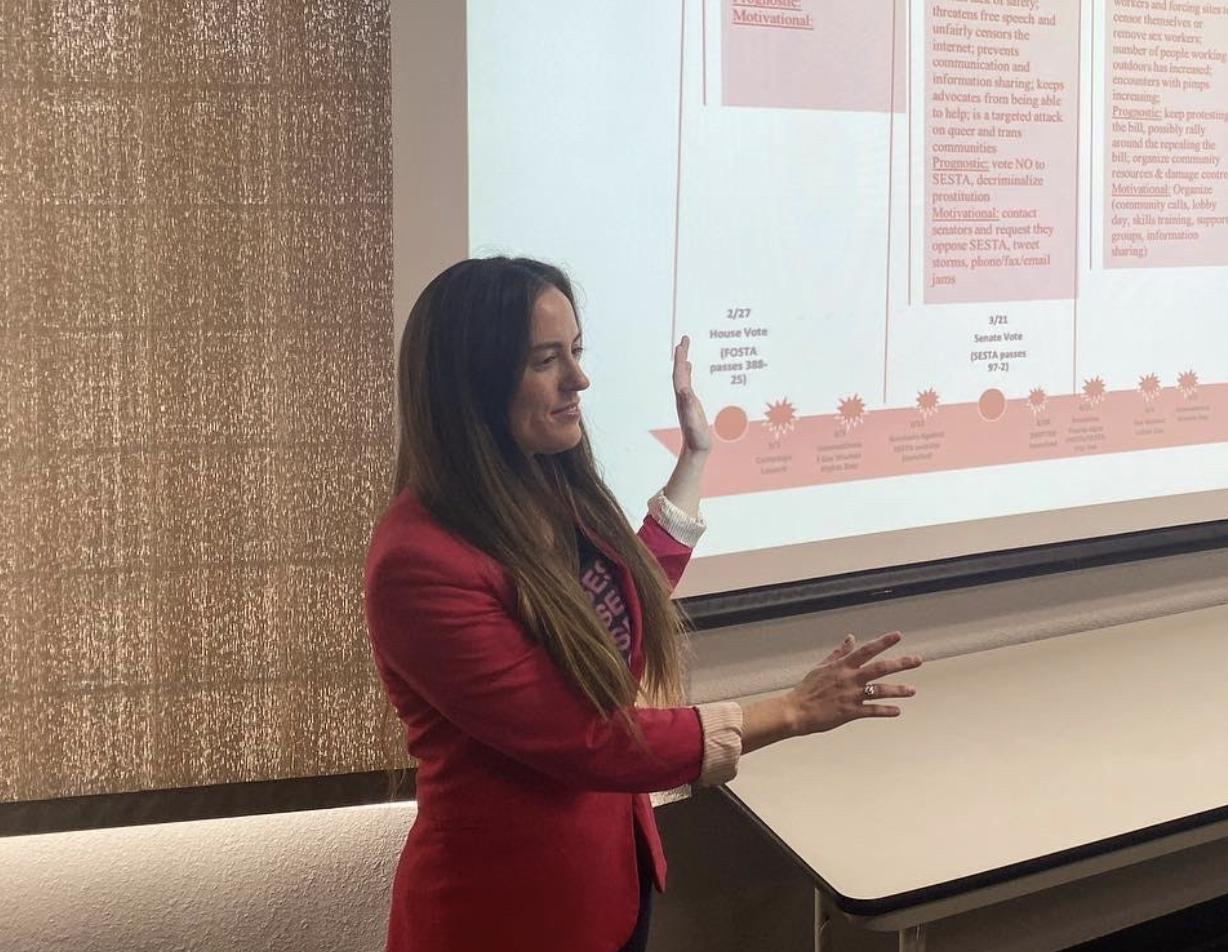My Dissertation Research

Utilizing semi-structured in-depth interviews, social media data, previous research, and other primary sources, along with participant observation as a community organizer, my work serves as an ongoing investigation into the ways contemporary anti-sex trafficking efforts — and subsequently increased surveillance — are impacting digital landscapes and shaping our current notions of digital sexual citizenship. As a scholar of networked movements, I am particularly interested in how this is impacting sex workers’ abilities and strategies to collectively organize, especially post-FOSTA/SESTA. I strive to embrace community-powered methods in my work and am forever grateful to sex working and survivor community members who have been co-creators throughout this project.
Key Points:
-
Performs critical analysis of the #LetUsSurvive campaign launched against FOSTA/SESTA in Spring 2018 by Survivors Against SESTA.
-
Applies community-based participatory action research to bridge gaps between marginalized groups and institutional researchers.
-
Contains three main parts: 1) A content analysis of Twitter posts during the #LetUsSurvive campaign, 2) In-depth interviews with members of Survivors Against SESTA, the group that spearheaded #LetUsSurvive efforts, and 3) Ethnographic participatory data from my time organizing against SESTA/FOSTA and in support of decriminalization.
-
Investigates the role of emotions, trauma, and burnout in sex worker- and survivor-led organizing and networked collective actions.
-
Aims to fill gaps in social movement studies by producing qualitative empirical research on the socioemotional components of hashtag activism and other digitally-mediated protests overtime.
-
Contributes to a number of different fields by asking how intensifying state-corporate surveillance regimes affect networked movements, as well as how ongoing sociotechnical shifts underscored by calls for decentralization are reshaping the very infrastructure of networked collective action itself.